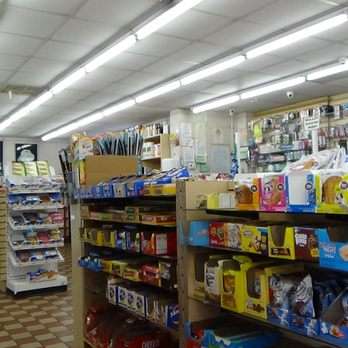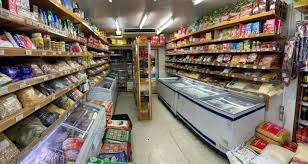Tokyo, a bustling metropolis known for its vibrant culture, cutting-edge technology, and diverse culinary scene, is increasingly becoming a welcoming destination for Muslim residents and visitors alike. As the Muslim population in Japan grows and tourism from Muslim-majority countries expands, the availability of halal products and services, particularly in the realm of food, has seen a significant rise. This explores the evolving landscape of halal shop in Tokyo and supermarkets in Tokyo, highlighting their importance and the increasing convenience they offer to Muslim consumers.
For Muslims, adhering to halal dietary laws is a fundamental aspect of their faith. This means consuming only food and products that are permissible according to Islamic law, which strictly prohibits pork, alcohol, and certain other ingredients, and requires specific methods for animal slaughter. Historically, finding halal-certified items in a predominantly non-Muslim country like Japan presented a considerable challenge. However, Tokyo has emerged as a leader in addressing this need, with a growing number of dedicated halal shops and supermarkets, alongside an increasing awareness of halal standards among mainstream retailers.
The Rise of Dedicated Halal Shops in Tokyo
Dedicated halal shops are the cornerstone of the halal food ecosystem in Tokyo. These establishments are specifically designed to cater to Muslim consumers, offering a wide array of products that are guaranteed to be halal. They often serve as cultural hubs, providing a sense of familiarity and community for Muslims living far from home.
One of the most prominent examples is the Tokyo Camii Halal Market, located adjacent to the beautiful Tokyo Camii mosque in Yoyogi-Uehara. This market offers a diverse range of imported halal products from various Muslim countries, including meats, dairy, spices, and pantry staples. Its direct affiliation with the mosque lends it an added layer of trust and authenticity.
Beyond Tokyo Camii, other notable halal shops have sprung up across the city. Jannat Halal Food, for instance, is a well-regarded grocery store in Shinjuku, known for its extensive selection of halal meats, spices, and ethnic culinary ingredients. They also offer a convenient online store with nationwide delivery, making halal food accessible even to those outside of central Tokyo. Similarly, Sonali Halal Food & Cafe in Oji and Al-Flah Supermarket (though technically in Yokohama, it serves a large Tokyo-area Muslim community) are popular choices, providing fresh halal meat, poultry, and a variety of international groceries.
These dedicated shops are crucial not only for their product offerings but also for their understanding of Muslim dietary needs. Staff are often knowledgeable about halal requirements, and the shopping environment is typically designed to be comfortable and accommodating for Muslim patrons. Many of these shops import directly from countries with robust halal industries, ensuring the authenticity and quality of their products.
The Growing Presence of Halal Products in Supermarkets
While dedicated halal shops remain vital, a significant development in Tokyo's halal landscape is the increasing availability of halal-friendly products in mainstream supermarkets. Chains like Yamaya and Gyomu Super, while not exclusively halal, have started stocking a selection of internationally imported foods that are coincidentally halal or explicitly labeled as such.
Yamaya, a popular import food store, often carries products from countries with strong halal certification bodies, such as Indonesia, Malaysia, and Turkey. Shoppers can find halal-certified instant noodles, sauces, and sometimes even frozen halal meats. Gyomu Super, known for its bulk and discount offerings, has also been noted to carry halal-pasteurized chicken from Brazil and various halal-compatible canned goods and sauces.
This integration of halal products into larger supermarket chains is a testament to the growing demand and the increasing awareness among Japanese retailers. It signifies a shift from halal being a niche market to a more recognized and catered-to segment of the consumer base. However, it's crucial for consumers to remain vigilant and always check ingredient lists and look for official halal certifications when shopping in these general supermarkets, as not all imported products will be halal.
Online Halal Shopping: Bridging the Gaps
For those who live outside the immediate vicinity of physical halal shops or prefer the convenience of home delivery, online halal supermarkets have become invaluable. Websites like Halal Food Dot Com (halalfood.jp) and the online platforms of physical stores like Jannat Halal Food and Indo Bazar offer a vast selection of halal meats, dry goods, snacks, and ready-to-eat meals, delivered right to your doorstep. This is particularly beneficial for Muslims residing in more rural areas of Japan where physical halal stores might be scarce. These online platforms often provide detailed information about product origins and certifications, allowing consumers to shop with confidence.
Challenges and the Path Forward
Despite the significant progress, challenges still exist. The cost of halal-certified products can sometimes be higher due to import logistics and smaller market volumes. Furthermore, while awareness is growing, not all Japanese food manufacturers have obtained halal certification for their products, meaning that some traditionally non-halal items are still difficult to find in a halal version.
However, the future looks promising. Japanese halal certification bodies, such as the NPO Japan Halal Association and Japan Islamic Trust, are playing a crucial role in promoting and facilitating halal certification for local businesses. Their efforts are not only increasing the domestic supply of halal products but also building bridges between Japanese industries and the global halal market.





